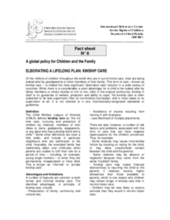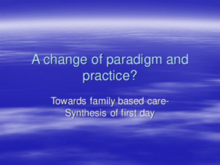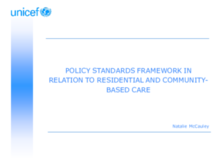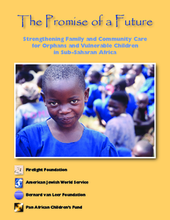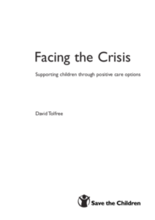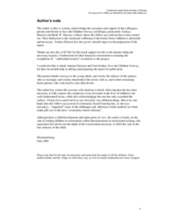Displaying 251 - 260 of 302
A guide for faith-based organizations working in developing countries on issues related to orphans and vulnerable children. Contains examples of successful community-based and family support care programs throughout the world that are run by faith-based groups. Discourages the use of institutional care and orphanages.
A brief fact sheet that provides an overview of kinship care.
A brief 2-page document that highlights the importance of child participation, post care planning, guarding against abuse, and connecting residential institutions with the surrounding community.
This article examines the foster care of Aboriginal children in Australia. It discusses the Aboriginal Child Placement Principle (ACPP), the role of indigenous kinship care and the self-determination of Aboriginal people.
This presentation was given at the Alternative Care Workshop in Bangkok in November 2005. The presentation describes the slow shift toward family-based care options in the South East Asia region.
This presentation from UNICEF was given at the Alternative Care Workshop in Bangkok in November 2005. It outlines the standards and principles for residential and community-based care in the region.
This presentation was given at the Alternative Care Workshop in Bangkok in November 2005. It provides an overview of the situation for children without parental care in China, the legal framework for child protection in the country, and the social welfare institutions that support children's care.
A brief document advocating for the strengthening and support of community based responses to children and families affected by HIV/AIDS in Africa.
A paper with guidelines for keeping children with families and providing proper care and protection for them. It provides examples and plans for those interested in planning care for separated children.
A description of the programmatic steps taken in establishing a community-based foster home in Ethiopia and an evaluative follow-up on these children ten years later


